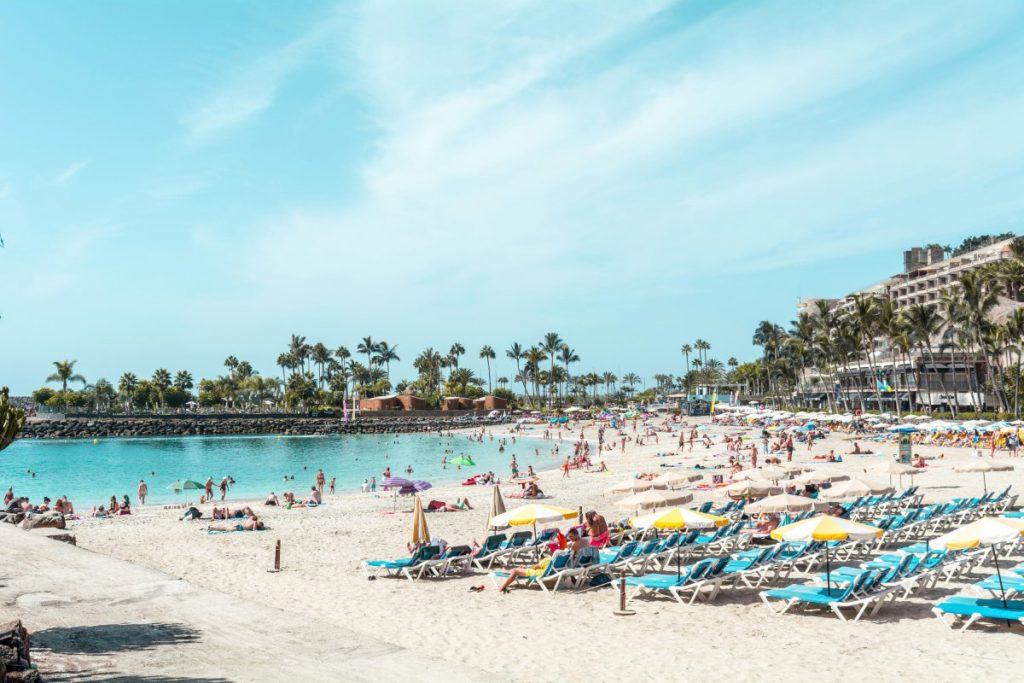Over a thousand people in the Canary Islands protested mass tourism, calling for a new approach to managing tourism in the popular tourist destinations. The protestors demanded a tourist tax on foreign visitors, a moratorium on short-term rentals, higher wages for tourism industry workers, and restrictions on home purchases by non-residents. Some chanted slogans such as “It’s not tourism, it’s colonialism” and “The Canary Islands are not for sale, they are to be loved and defended.” The demonstrations followed a previous protest in April with tens of thousands of participants, as the government has not yet addressed their demands.
The Canary Islands have experienced a significant increase in tourism this year, with over 11.6 million visitors between January and August, a 10% increase from the previous year. This rise in tourism has prompted concerns among locals about the impact of mass tourism on their communities and environment. The protests reflect a growing trend of residents in popular tourist destinations expressing dissatisfaction with the negative effects of tourism, such as overcrowding, rising living costs, and cultural disruption. The call for a new tourism management model highlights the need for sustainable tourism practices that prioritize the well-being of local residents and the preservation of natural resources.
The protests in the Canary Islands are part of a larger movement against overtourism, with residents in various cities and regions around the world speaking out against the negative consequences of excessive tourism. In Spain, mass protests have been seen in Barcelona against hosting the America’s Cup, showcasing the widespread discontent among residents towards the impact of tourism on their cities. The push for environmental protection, economic fairness, and cultural preservation in the face of mass tourism reflects a growing awareness of the need for responsible travel practices and sustainable tourism development.
As tourism continues to grow globally, it is important for destinations to find a balance between economic benefits and social and environmental impacts. The protests in the Canary Islands highlight the need for governments and tourism authorities to engage with local communities and address their concerns about the effects of mass tourism. Implementing policies such as tourist taxes, regulations on short-term rentals, and ensuring fair wages for tourism workers can help mitigate the negative impact of tourism on local residents and promote sustainable tourism practices that benefit both visitors and host communities.
The protests in the Canary Islands send a powerful message to the tourism industry and policymakers about the need for a more sustainable and inclusive approach to tourism development. By listening to the voices of local residents and incorporating their perspectives into tourism planning and management, destinations can build more resilient and responsible tourism economies. The global movement against overtourism is a reminder of the importance of creating tourism strategies that prioritize the well-being of communities, protect natural and cultural heritage, and promote a more harmonious relationship between tourists and locals.
In conclusion, the protests in the Canary Islands reflect a broader challenge facing popular tourist destinations around the world as they grapple with the impacts of mass tourism. By addressing the demands of local residents and implementing policies that promote sustainable tourism practices, destinations can create a more equitable and sustainable tourism industry that benefits both visitors and host communities. The Canary Islands serve as a compelling example of the need for a new tourism management model that prioritizes the well-being of residents and the preservation of natural and cultural resources in the face of growing tourism pressures.


